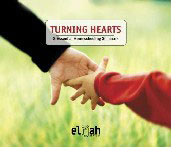
E-journal October 27, 2009 |
Why are Women Becoming More and More Unhappy? View past ejournals HERE>> I haven't written an e-journal in months. As most of you know, my mother died last year and her death took me a long time to get over. After she died, I sort of lost my interest in writing and went into what I can only describe as a kind of depressed, grieving writer's block. Then my life became full of "then...s." The contractor we hired to do some remodeling started stealing our building materials,and drug us through a long legal battle when we fired him...then James and Blake came home for months between jobs...then I had to travel a lot settling my mother's estate...then I decided to convert my e-journals into a blog and started studying Joomla...then I gave up Joomla because I couldn't quite figure out how to set up a Joomla site with blog...then the deadbeat husband of a couple living in one of our apartments left his wife, taking the car and gutting their bank accounts so I let her live in an RV near the barn until she can get the horses she's been boarding there sold for enough money to move on (and to pay her rent and board bill)...then some perennially hostile neighbors decided to dispute the boundary between our property and theirs (after living in their current home for six years) so they filed a suit against us...then a friend lost her job and needed a place to stay until she could find another one...then another friend had an emotional meltdown and needed a place to stay to pull things together...then...then...then.... It seems like months and months have slipped by full of "then..." dramas. Your life is probably that way too, so you will understand. Anyway, I'm back and I've been reading some interesting material lately I want to share with you. This week's most interesting piece is about how women are getting sadder and sadder with each passing year. What I read was the results of a 35 year study on happiness entitled “The Paradox of Declining Female Happiness” (American Economic Journal: Economic Policy, August, 2009). You can read the study yourself at this link. This report caught my eye for two reasons. First, because I've experienced a lot of unhappiness myself this past year as well as observed it in others, and second, because my dream is to retire to Vanuatu—supposedly the "happiest place on earth." This study spanned 35 years—from 1972 through 2006—and questioned over 50,000 men and women about their general satisfaction with different aspects of their lives such as their marriage, their health, their financial situation, and their job. Subjective well-being was measured using the question: “How happy are you, on a scale of 1 to 3, with 1 being very happy, 2 being pretty happy, and 3 being not too happy? In a nutshell, the study showed that from 1972 to 2006, women moved from very happy and pretty happy towards not too happy. And the decline in happiness had nothing to do with how old they were, what race they were, how educated they were, whether they had kids, how many kids they had, whether they worked or stayed at home, how much money they made, or whether they were married, divorced, or single. The study stated: The lives of women in the United States have improved over the past 35 years by many objective measures, yet we show that measures of subjective well-being indicate that women’s happiness has declined both absolutely and relative to men. This decline in relative wellbeing is found across various datasets, measures of subjective wellbeing, demographic groups…. Relative declines in female happiness have eroded a gender gap in happiness in which women in the 1970s reported higher subjective well-being than did men. These declines have continued and a new gender gap is emerging—one with higher subjective well-being for men. I hope you can appreciate what this is saying—that women are generally less happy today than they were 35 years ago, NO MATTER WHAT THEIR LIVES ARE LIKE. Not only that, but, as a gender, women are trending towards less and less happiness. Since 1972, women’s overall happiness has declined, not only relative to how happy they were 35 years ago, but also relative to men’s overall happiness. The study also pointed out that there is generally a strong correlation between answers to subjective wellbeing (happiness) questions and physical evidence of affect such as smiling, laughing, heart rate, sociability, and electrical activity in the brain. In addition, “measures of individual happiness or life satisfaction are also correlated with other subjective assessments of well-being such as independent evaluations by friends, self-reported health, sleep quality, and personality.” So being happy doesn’t just make you feel good, it also positively benefits your physical and social health. This decline in happiness is striking when you consider that in recent polls 4 out of 5 adults believed that the lives of women in the United States have improved dramatically over the past 50 years. 72% of women in a 1999 Virginia Slims Poll believed that “women having more choices in society today gives women more opportunities to be happy.” And other surveys have indicated that women today are more likely than men to believe that their opportunities to succeed exceed those of their parents. And, in case you’re wondering if the findings of this study are unique….they aren’t. Five other major studies that followed the happiness of over a million people in the past 40 years have reached the same conclusion—that women are becoming increasingly less happy in spite of increasingly more opportunities. Overall, greater educational, political, and employment opportunities have corresponded to decreases in life happiness for women as compared to men. The second finding of all these studies is that women become less and less happy with age but men get happier as they grow older. In general, “Women start adult life happier than men, but end up less happy.” It seems that men are more likely to realize their aspirations as they grow older than women are. Women begin their lives more satisfied than men, but wind up less satisfied. By the time women reach age 47, they are, overall, less happy with their lives than men, and the trend continues down from there. So the two trends in the data from all these studies are:
So why are we less happy than we were 35 years ago? And why are we growing more and more unhappy as the years go by? There have been lots of theories, such as “women are more stressed today because they have to be supermoms juggling careers and households at the same time.” But that theory doesn’t hold water because stay-at-home moms reported a decline in happiness just like working moms did. And whether the women was married or single didn’t make any difference—both situations showed declining happiness for women. Is it because they don't live in Vanuatu? Maybe. Next newsletter I’ll share more about these disturbing trends and some ideas about happiness.Ellyn
SALE PRODUCTS!
Limited Quantities Left Brained Finance for Right Brained People is hands down the best book we've ever found about money and finances and how to manage both. It could be used as the core curriculum for a Money and Finance unit with junior highs and up or by parents to have an overall understanding of money and how it works so they can teach their children. |
Home Business Resources
If you missed one of our From Home School to Home Business Conferences, you missed a great time.People who have attended tell us that it changed their lives—not only in the area of home schooling, but also in the area of creating their own sources of home income.This set is huge and filled with useful and encouraging information about how to be successful at home schooling and at home business! Find out more about this life-changing set of CDs HERE>> Building the Business of Your Dreams (8 CD Set) I've had requests for just the business portion of the From Home School to Home Business Seminar, so have developed a set of the business CDs from that set. It contains 8 CDs and includes sessions on The Entrepreneurial Mind, Multiple Streams of Home Income, Discovering Your Ideal Life and Ideal Business (2 CDs) , Developing a Business Plan (2 CDs), and The Importance of Business Relationships. Plus, there is a very important and insightful interview on Redeeming the Marketplace. Find out about this life-changing set of CDs HERE>> With over 4,000 copies sold in just a few months, I Saw the Angel in the Marble is becoming a home schooling best seller! This book represents the best of 15 years of Elijah Company articles. Find our more HERE>>
Any article appearing on this website may be copied or forwarded electronically provided that proper credit is given and that the article is not substantively modified.
No article may appear in whole or in part in a publication sold for profit or as part of any commercial endeavor without the written consent of Home School Marketplace. Any reprint must include an acknowledgement of where it came from and the sentence "Sign up for the Home School Marketplace newsletter at www.homeschoolmarketplace.com." |





